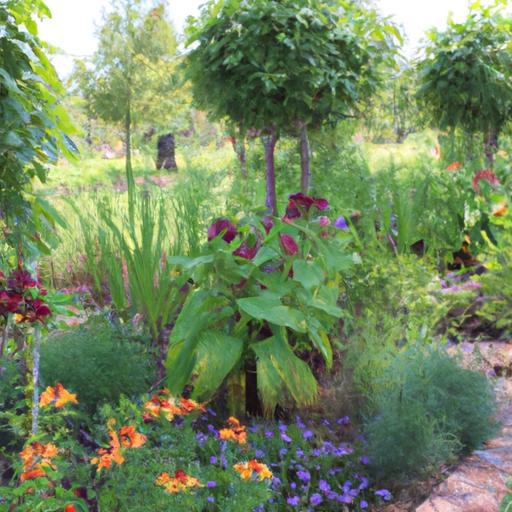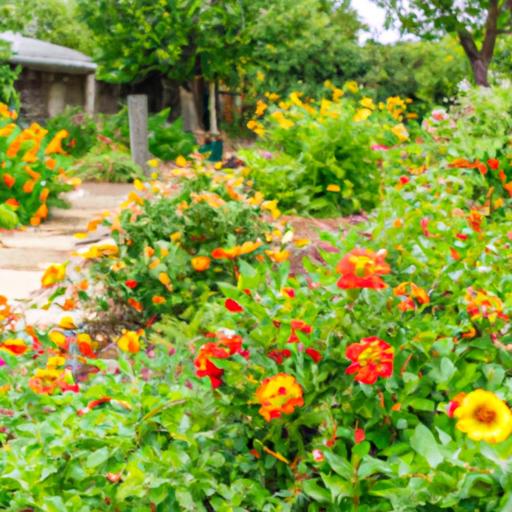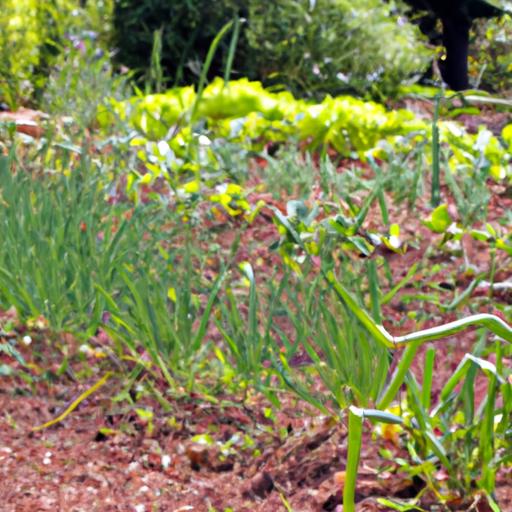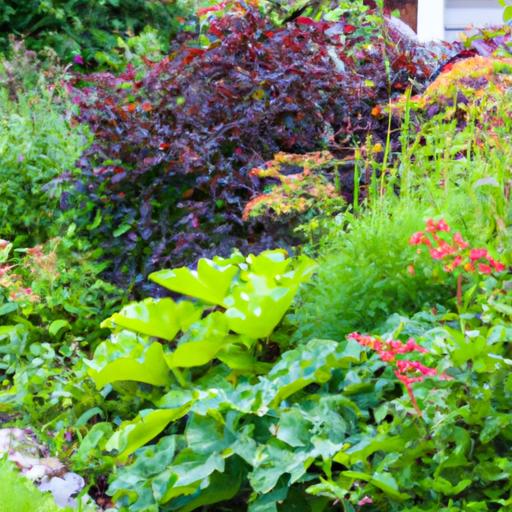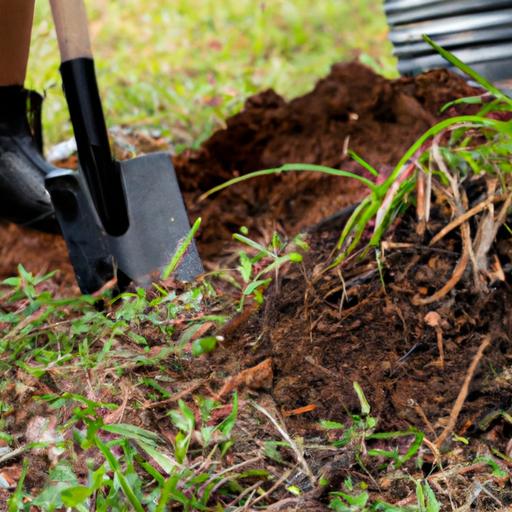When it comes to gardening, we all want the best for our plants. Gardening lime is a commonly used product that helps maintain soil pH levels, ensuring optimal plant growth. However, as responsible pet owners, we must also consider the safety of our furry friends. Are dogs at risk when exposed to gardening lime? In this article, I will address your concerns and shed light on whether gardening lime is safe for dogs.
A. Importance of Gardening Lime in Gardening Practices
Before delving into the safety aspect, let’s understand the significance of gardening lime. You see, maintaining the right soil pH is crucial for thriving plants. Gardening lime, also known as agricultural lime or garden lime, is a natural substance that helps neutralize acidic soils, making them more alkaline. This adjustment promotes nutrient availability to plants, resulting in healthier and more robust growth.
B. Concerns about the Safety of Gardening Lime for Dogs
Now, let’s tackle the elephant in the room – the safety of gardening lime for our canine companions. Many dog owners worry that gardening lime might pose a threat to their furry friends. After all, dogs are known to explore their surroundings with great curiosity, and accidental ingestion or contact with harmful substances can be a cause for concern.
C. Purpose of the Article
The purpose of this article is to provide you with comprehensive information regarding the safety of gardening lime for dogs. We will explore potential risks, discuss safety measures, and present expert opinions and research findings to help you make an informed decision. Ultimately, we aim to create a safe gardening environment for both your plants and your four-legged friends.
Now that we understand the importance of gardening lime and the concerns surrounding its safety for dogs, let’s delve deeper into the subject. In the following sections, we will explore potential risks to dogs, safety measures to adopt, and expert insights to help you navigate this aspect of gardening responsibly. So, let’s get started!
Understanding Gardening Lime
A. Definition and Composition of Gardening Lime
To comprehend the impact of gardening lime on our furry friends, we must first grasp its nature. Gardening lime is primarily composed of calcium carbonate, a naturally occurring substance derived from limestone or chalk. This compound acts as a soil amendment, counterbalancing acidity and enhancing the soil’s pH level.
B. Common Uses of Gardening Lime in Gardening
Gardening lime serves various purposes in the world of gardening. It is primarily employed to neutralize acidic soils by raising their pH levels. When soil becomes too acidic, essential nutrients required by plants become less accessible, hindering growth. By incorporating gardening lime into the soil, we can create a more balanced environment, ensuring optimal nutrient absorption for our beloved plants.
In addition to its pH-adjusting properties, gardening lime also aids in improving soil structure. It reduces soil compaction and enhances water drainage, allowing roots to grow more freely. Furthermore, gardening lime can help control certain pests and diseases by creating an environment less favorable for their growth.
C. Types of Gardening Lime Available in the Market
When it comes to gardening lime, there are different types available on the market. The two main categories are calcitic lime and dolomitic lime. Calcitic lime contains calcium carbonate, while dolomitic lime contains both calcium carbonate and magnesium carbonate. The choice between the two depends on the specific needs of your soil, as magnesium deficiency can occur in certain regions.
It’s important to note that gardening lime is available in various forms, including powder, pellets, and granules. Each form has its own advantages, such as ease of application or longevity. Consider your gardening needs and the preferences of your plants when selecting the most suitable type and form of gardening lime.
Now that we have a solid understanding of gardening lime, its composition, common uses, and the types available in the market, we can move forward to address the concerns surrounding its safety for our canine companions. Let’s explore the potential risks and necessary precautions to ensure a dog-friendly gardening experience in the upcoming section.
Potential Risks to Dogs
Gardening lime, despite its benefits for plants, does pose potential risks to our beloved canine companions. It’s essential to be aware of these risks and take necessary precautions to keep our dogs safe. Let’s examine the potential risks associated with gardening lime and the consequences of exposure to dogs.
A. Overview of Potential Risks Associated with Gardening Lime
While gardening lime is generally considered safe for plants and humans, it can be harmful to dogs if they come into contact with it. The primary concern lies in the alkaline nature of gardening lime, which can cause irritation and burns on a dog’s skin, nose, mouth, and paws upon direct contact.
B. Chemical Compounds in Gardening Lime that May be Harmful to Dogs
Gardening lime contains calcium carbonate, the main compound responsible for its alkaline properties. When dogs come into contact with gardening lime, the calcium carbonate can react with moisture on their skin or mucous membranes, leading to alkaline burns. Additionally, gardening lime may also contain traces of heavy metals or other potentially toxic substances that could pose further risks to dogs if ingested.
C. Symptoms and Health Issues that May Arise if Dogs Come into Contact with Gardening Lime
If a dog accidentally ingests gardening lime or gets it on their skin or paws, they may exhibit various symptoms and health issues. These can include excessive drooling, vomiting, diarrhea, nasal discharge, skin redness or irritation, paw pad burns, and discomfort. In severe cases, dogs may experience difficulty breathing or swallowing, which requires immediate veterinary attention.
To ensure the well-being of our dogs, it is crucial to be cautious when using gardening lime and take appropriate measures to prevent their exposure. In the next section, we will discuss safety measures and precautions to minimize the risks associated with gardening lime and protect our furry friends.
Safety Measures for Dogs and Gardening Lime
As responsible pet owners, it is crucial to take necessary precautions when using gardening lime around dogs. By implementing a few simple safety measures, we can ensure the well-being of our furry friends while maintaining a beautiful garden. Here are some key steps to consider:
A. Precautions to Take When Using Gardening Lime Around Dogs
-
Limit Access: Restrict your dog’s access to areas where gardening lime has been applied. Consider using physical barriers or fencing to prevent accidental contact.
-
Store Properly: Keep gardening lime securely stored in a sealed container or in a location that is out of reach for dogs. This will prevent them from ingesting or coming into direct contact with the product.
-
Wear Protective Gear: When handling gardening lime, it is advisable to wear gloves and a mask to protect yourself from potential irritation. This will also minimize the risk of inadvertently transferring the product to your dog through contact.
B. Tips to Minimize the Risk of Exposure for Dogs in Gardening Areas
-
Clean Paws: After gardening or spending time in areas where gardening lime is present, make it a habit to clean your dog’s paws thoroughly. This will remove any residual lime and prevent them from ingesting it during self-grooming.
-
Wash Food and Water Bowls: If gardening lime has been used near your dog’s food and water bowls, ensure that they are thoroughly cleaned to eliminate any potential contamination.
-
Supervise Outdoor Activities: Keep a close eye on your dog when they are outdoors, especially in the garden. By supervising their activities, you can prevent them from digging or playing in areas where gardening lime has been applied.
C. Safe Alternatives to Gardening Lime for Dog-Friendly Gardening Practices
If you are concerned about the potential risks associated with gardening lime, there are alternative options available for dog-friendly gardening:
-
Organic Soil Amendments: Consider using organic soil amendments like compost, well-rotted manure, or coconut coir to improve soil quality and pH levels. These natural alternatives are safe for dogs and provide similar benefits to gardening lime.
-
pH Testing Kits: Regularly test your soil’s pH levels using pH testing kits. This will allow you to monitor and adjust the pH without the need for gardening lime.
By following these safety measures and exploring dog-friendly alternatives, you can create a harmonious gardening environment that ensures the well-being of your dogs without compromising on plant health. Stay tuned as we dive deeper into expert opinions and research findings in the next section.
Expert Opinions and Research Findings
A. Insights from Veterinarians and Gardening Experts
When it comes to the safety of gardening lime for dogs, it’s essential to seek insights from professionals in the field. Veterinarians and gardening experts offer valuable perspectives to help us make informed decisions. Let’s dive into their opinions on the matter.
According to renowned veterinarians, gardening lime poses minimal risk to dogs if used correctly. They suggest taking precautions, such as keeping dogs away from freshly treated areas and ensuring proper soil incorporation. Additionally, they emphasize the importance of monitoring your dog’s behavior and promptly seeking veterinary care in case of any concerning symptoms.
Gardening experts also weigh in on the topic, highlighting the potential benefits of gardening lime when used responsibly. They emphasize that as long as you follow recommended guidelines and avoid excessive exposure, the risk to dogs is minimal. Proper application techniques, such as using gloves and washing hands after handling gardening lime, further minimize the chances of any adverse effects.
B. Studies and Research on Gardening Lime and Dogs’ Health
To provide a comprehensive view, let’s explore the studies and research conducted to assess the impact of gardening lime on dogs’ health. While limited studies specifically focus on this topic, broader research on lime products and their effects offer valuable insights.
Studies have shown that the chemical compounds present in gardening lime, such as calcium carbonate, are generally considered safe for dogs. However, it is important to note that excessive ingestion or prolonged exposure can lead to gastrointestinal upset or respiratory irritation. It is crucial to adhere to recommended usage guidelines and avoid direct ingestion or contact.
C. Balancing Opinions and Considering Consensus
As with any topic, opinions may vary on the safety of gardening lime for dogs. It is essential to consider various perspectives and find a consensus. While some individuals may express concerns, the overall consensus among experts is that when used responsibly, gardening lime poses minimal risk to dogs.
Balancing opinions and considering consensus allows us to make informed decisions that prioritize the well-being of our canine companions. By following recommended safety measures and keeping an eye on our furry friends, we can enjoy the benefits of gardening lime without compromising their health.
In the next section, we will conclude our discussion by summarizing key points and offering a final verdict on the safety of gardening lime for dogs. Stay tuned!
Conclusion
After a thorough examination of gardening lime’s safety for dogs, we can confidently draw some conclusions. While gardening lime is generally considered safe for plants and gardens, precautions must be taken when it comes to our canine companions.
It is important to remember that gardening lime contains chemical compounds that may pose potential risks to dogs if ingested or exposed to for prolonged periods. These risks can range from mild irritation to more severe health issues. Therefore, it is crucial to prioritize the safety of our furry friends and take appropriate measures to minimize their exposure to gardening lime.
To ensure a safe gardening environment for dogs, consider the following recommendations. When using gardening lime, keep your pets away from the area until the product has been thoroughly watered into the soil and has dried. Store gardening lime securely, out of reach of curious noses and paws. Additionally, consider using dog-friendly alternatives to gardening lime, such as compost or organic soil amendments.
While there is limited research specifically focused on the impact of gardening lime on dogs, it is advisable to consult with your veterinarian for personalized advice based on your dog’s breed, age, and health condition.
In conclusion, while gardening lime can be beneficial for your plants, it is crucial to prioritize the safety and well-being of your furry friends. By taking necessary precautions and exploring dog-friendly alternatives, you can create a harmonious gardening environment where both your plants and dogs can thrive.
Remember, gardening is not only about nurturing plants; it’s also about fostering a safe and enjoyable space for all members of your family, including your beloved canines. Happy gardening, and happy tail-wagging adventures in your garden!
